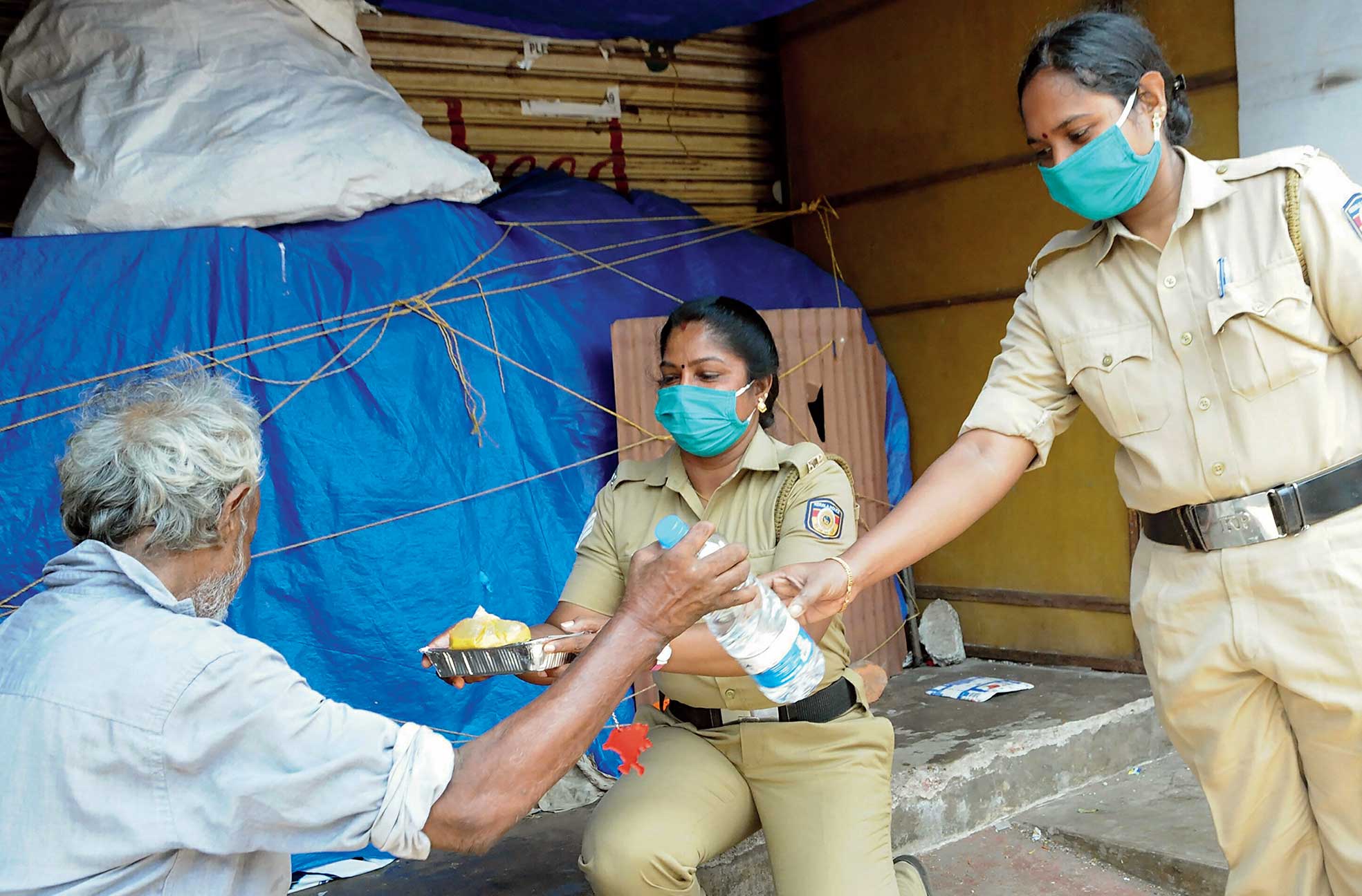Nearly one crore workers are being given food by the government, NGOs and private employers across India, the government has told the Supreme Court, but academics and activists said the labourers needed income support apart from food.
Two labour economists told The Telegraph that most of these workers would have lost their jobs and the government should provide them the daily minimum wage throughout the lockdown period.
The government’s claim came in an affidavit filed on April 7 by Gyanesh Kumar, additional secretary in the home ministry.
It said the government (Centre and state governments) was providing food to 54 lakh people, the NGOs to 30 lakh people and industry and employers to 15 lakh people.
The affidavit came in response to a petition from activist Harsh Mander, who had contended the government should pay the minimum wage and deliver free rations to the stranded migrant workers during the lockdown period.
The apex court later dismissed the case after the Centre said it was providing the workers food and taking measures to protect them from the coronavirus.
Labour economist Ravi Srivastava told this newspaper that these 99 lakh people who were being fed would only make up 30 to 40 per cent of the migrant workers stranded in places away from their homes.
“Of those receiving food, the majority are out of job. They need protection in terms of income support,” Srivastava said.
He said most migrant workers get an advance from the labour contractors and receive the balance pay after the completion of the work assigned to them.
During this lockdown period, the labour contractors would not be in touch with the workers, so the Centre must pay them their wages, Srivastava said.
The Centre has allowed the migrant workers to work within the states where they are now located but continues to ban inter-state travel.
“If a worker can travel from western Maharashtra to Konkan, why not allow them to travel from Mumbai to Andhra Pradesh with social-distancing measures?” Srivastava said.
“The central government has allowed some states like Uttar Pradesh, Madhya Pradesh and Haryana to bring back their workers. The same should be allowed to all the states.”
K.R. Shyam Sundar, professor of labour studies at the Xavier Institute of Management, Jamshedpur, said that opening feeding centres alone would not solve the problems of the migrant workers.
“The State’s job is not only to feed. In these extraordinary times, the migrant workers and their families must be treated with dignity and provided with income support, which is equivalent to the minimum wage or poverty-line wage, whichever is higher,” Sundar said.
Labour secretary Heeralal Samariya had last week told a delegation of industry body Ficci that the government was trying to map the skills of the stranded workers so they could be offered jobs.
“We are issuing directions to the states to do a matching of skills and the jobs available, and offer jobs to the stranded workers,” he said.
Mander, however, told this newspaper that it was not possible for a government in a free market economy to do such matching and offer jobs.
“This is not only an un-implementable idea, it still looks upon the workers as an economic resource — to be used opportunistically — rather than rights-holders who have the right to wage payments throughout the lockdown (in the way formal workers are being paid),” Mander said.
Another labour economist, who did not wish to be quoted, said the labour ministry lacked the wherewithal to find out which jobs were available in the market.
“This is not Lenin’s Russia where all the jobs were under the State’s control. In India, demand and supply decide job availability. There is no need for prospective employers to tell the government whether jobs are available,” the economist said.
He said the workers had all these days sought jobs but were not provided any. Now they would prefer to return home to take care of themselves and their families.










